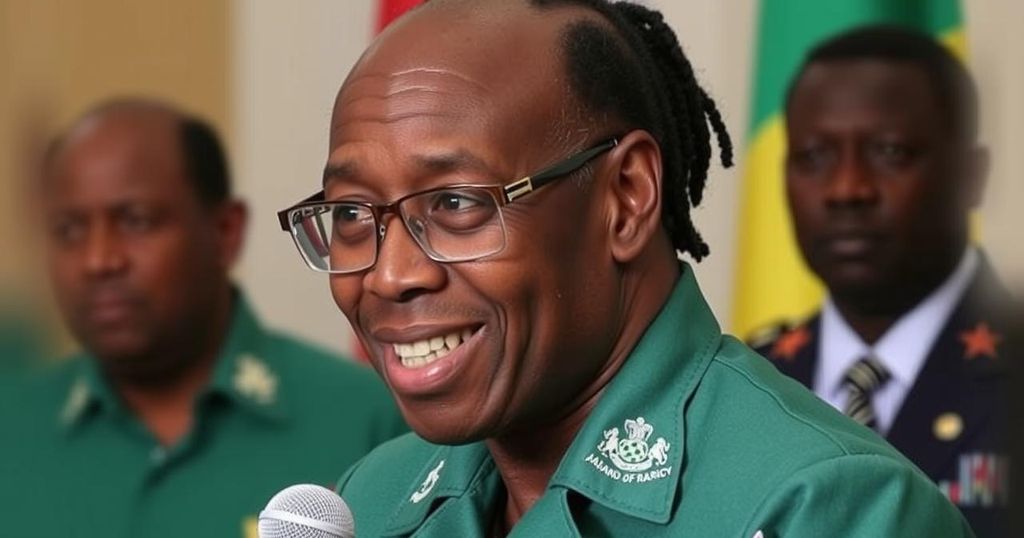Uganda’s military intervention in eastern DRC through Operation Shujaa has yielded mixed outcomes, effectively displacing the ADF from some territories while raising suspicions of support for rival rebel groups. Despite reducing militant activities near the Ugandan border, the ADF has adapted its strategies, expanding its reach. Uganda’s actions are scrutinized amid allegations of self-interest and a desire to maintain economic advantages in the region.
Three years after Ugandan forces intervened in eastern Democratic Republic of Congo (DRC) within the framework of Operation Shujaa, aimed at combating the Allied Democratic Forces (ADF) – a militant group linked to the Islamic State – the outcomes remain mixed. While significant territorial gains have been made against the ADF, allegations have emerged suggesting that Uganda may be covertly supporting another rebel faction, thereby raising critical questions regarding its true objectives in the region.
Operation Shujaa, which signifies ‘bravery’ in Swahili, was executed in conjunction with Congolese military efforts and has successfully recaptured several strategic areas previously held by the ADF near the Ugandan border. As a result, residents in regions like Beni have experienced some relief with lifted curfews and reduced need for armed escorts. Brigadier General Felix Kulayigye remarked, “Their ability to cause harm has been degraded,” indicating that ADF leadership has suffered from a series of targeted operations.
Nevertheless, the situation remains precarious as the ADF has adapted by expanding its operational footprint westward and intensifying assaults in previously untouched territories, allowing it to retaliate against military offensives. Bruno Mirivi, a researcher affiliated with the Congolese think tank Ebuteli, explained that the group’s fragmentation has constrained its operational capabilities but does not diminish its ferocity.
The international community has expressed skepticism regarding Uganda’s true ambitions in DRC. Accusations from UN experts suggest that Uganda has been covertly aiding M23, a rebel group supported by Rwanda. Despite the denial of these claims by Ugandan authorities, DRC President Félix Tshisekedi has called for transparent proof of Uganda’s intentions concerning its military activities.
In addition to addressing security concerns, Operation Shujaa aligns with Uganda’s broader economic objectives. Kristof Titeca, a Belgian research analyst, noted that this military engagement allows Uganda to oversee essential infrastructure projects and safeguard its oil investments in the region. Uganda’s increasing reliance on DRC for its gold trade further complicates the situation, as both Uganda and Rwanda vie for economic dominance in Eastern DRC.
Furthermore, Uganda has reinitiated plans to develop vital transport infrastructures to enhance connectivity between Uganda and DRC, although these endeavors face criticism due to their potential for igniting regional tensions. Scholars suggest that Uganda’s approach is one of strategic balancing, aimed primarily at safeguarding its national interests while navigating through a complex geopolitical landscape.
The long-standing conflict involving the Allied Democratic Forces (ADF), which has claimed numerous civilian lives and resulted in significant instability in eastern DRC, necessitated international intervention. Uganda’s operation aimed to reduce the threat posed by the ADF, but subsequent allegations of double-dealing have emerged, potentially undermining the credibility of Uganda’s efforts. The dynamics in the region are complicated by other rebel factions, particularly the M23, and the overlapping economic interests of Uganda and Rwanda.
In summary, while Uganda’s Operation Shujaa has achieved certain tactical victories against the ADF, the underlying motives and broader implications of its military presence remain contentious. The dual objectives of addressing security and pursuing economic interests highlight the complexity of regional politics, particularly as accusations of double-dealing complicate Uganda’s position. Increased scrutiny of Uganda’s military role in DRC is likely as the situation evolves.
Original Source: www.rfi.fr






